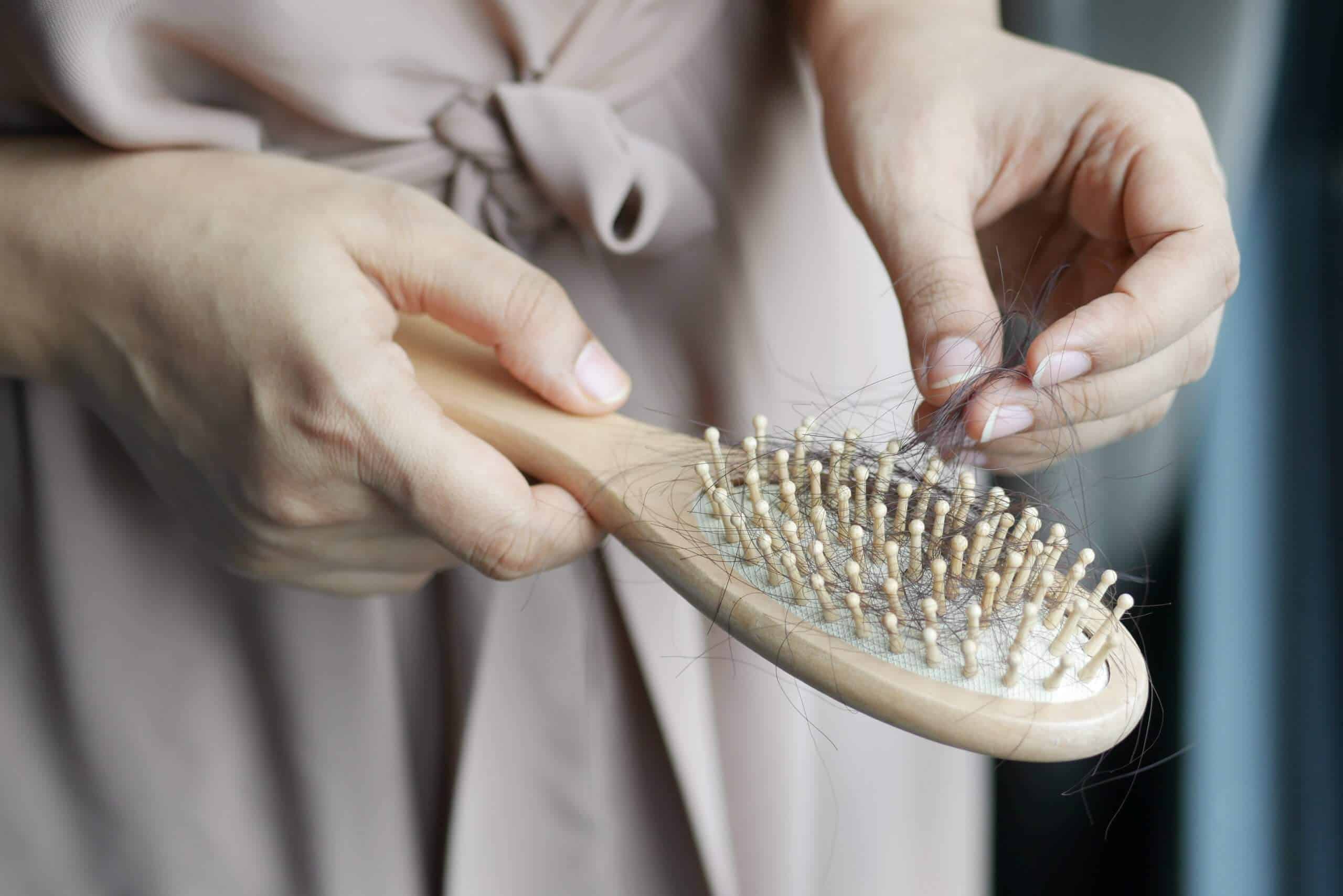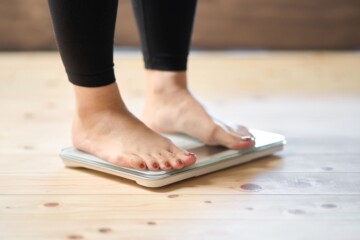It’s hard when every day is a bad hair day. Hair loss isn’t something that women talk about enough; they often put on a brave face. But the reality is that losing your hair can be traumatising and can destroy your self-esteem, especially as it’s often a big part of a person’s identity. Thinning hair can be seen as a masculine trait, with thick hair and femininity inherently linked. Hair loss isn’t just a physical condition, it also attacks your mental state of mind.
PCOS can be a cause of hair loss. Add other PCOS symptoms to the mix, such as depression and weight gain, and it can all feel too overwhelming. We shine a light on PCOS hair loss and most importantly, we explain what you can do about it.
Why does PCOS cause hair loss?
Before we can consider treatment for PCOS hair loss, it’s helpful to understand the underlying cause. A woman’s body produces androgens — male hormones which include testosterone. Androgens play an important role in starting hair growth in the armpits and pubic area. A woman with PCOS could be experiencing extra androgen production, leading to virilization. Virilization is the development of exaggerated masculine characteristics and this includes hair in areas of the body such as the:
- Chest
- Face
- Tummy
- Neck
As well as putting more hair in places where you don’t want it, the increased androgens can also cause hair loss from your head, although this isn’t as common. This is called female pattern hair loss. The hair loss can often begin around the front of the scalp and temples (not receding and/or a thinning crown as men can experience). Male pattern hair loss is talked about a lot, but female pattern hair loss just isn’t, which can make women suffering from hair loss feel alone.
What are the symptoms of PCOS hair loss?
It’s perfectly normal to shed hair in the shower or on your hairbrush, especially due to seasonal changes such as central heating drying your hair out in the winter and sun damage in the summer. However, PCOS hair loss leads to more hair loss than normal.
People tend to think of hair loss as being from the root (the hair follicle coming out entirely) but with PCOS, the hair loss can also be caused by the hair breaking off along the hair shaft as the hair becomes drier and more damaged. You might see clumps of hair coming out in the shower which can be particularly distressing. Or you might see more hair than usual on furniture, your pillowcase or clothes.
You may also find that you experience an itchy, dry scalp and sometimes that comes with dandruff. And, annoyingly, you may experience more hair frizz, where the hair has broken off and so the shorter strands don’t lie flat with the rest of the hair. Part of your scalp may also become more visible.
The three stages of female pattern hair loss are illustrated with the Ludwig scale:
- There are thin hairs among healthy hairs, with small areas of hair loss.
- The thin hairs multiply and bald patches can be seen.
- Hair becomes almost invisible
Is PCOS hair loss reversible?
Thankfully, PCOS hair loss can be reversed if the underlying cause is treated (in the case of PCOS, hormonal imbalance). There are a number of things that can be done to reverse it.
✔ Adopt a healthy, balanced diet, with lots of nutrient-rich food.
✔ Exercise regularly, to increase your blood circulation, allowing for more oxygen and nutrients to get to your scalp, as well as to reduce stress.
✔ Revive hair follicles (consult a trichologist).
How can you treat hair loss caused by PCOS?
There are lots of potions and lotions available which are advertised to treat hair loss. However, PCOS hair loss needs to be treated internally as well. And even when you start treatment, you have to be patient, because the hair growing back can take its time.
- Take a high-quality supplement like Inofolic Alpha which can help with PCOS.
- Consider medical treatments available from your doctor, such as prescription-strength shampoo and Metformin to help control insulin levels.
- Avoid shampoos that contain mineral oils and wax as they can leave a film on your scalp which prevents natural oil production.
- Avoid brushing your hair when it’s wet.
- Avoid frequent bleaching (and always get it professionally done).
- Use soft hair bands when tying your hair back (such as silk scrunchies and hair ties).
- Sleep on a satin pillowcase.
- Avoid using hair dryers, hair straighteners or heated curling irons.
- Eat a low-carb diet. This will aid weight loss, lower insulin levels, and reverse insulin resistance. And this helps to balance your hormones.
- Include food in your diet which contains the nutrients your hair needs. Broccoli and beans are rich in selenium, nuts are rich in zinc, eggs and seafood will provide you with choline and peanuts contain biotin.
- Ask your GP to check your iron levels. Low iron can cause hair loss and is treated with iron supplements. Also include iron-rich foods in your diet, such as meat, eggs, dried apricots and leafy greens like spinach and kale.
If your hair loss means that you’re struggling to do everyday activities or it is affecting your relationships and mental health, make sure that you discuss this with your GP. Hair loss is not something to trivialise and if it is PCOS-related, there are so many treatments available to help.
References
Carmina, Enrico et al. Female Pattern Hair Loss and Androgen Excess: A Report From the Multidisciplinary Androgen Excess and PCOS Committee. The Journal of Clinical Endocrinology and Metabolism. Jul 2019.
Zhang, Xiaoshuai. The Effect of Low Carbohydrate Diet on Polycystic Ovary Syndrome: A Meta-Analysis of Randomised Controlled Trials. International Journal of Endocrinology. Published online 2019 Nov 26.








